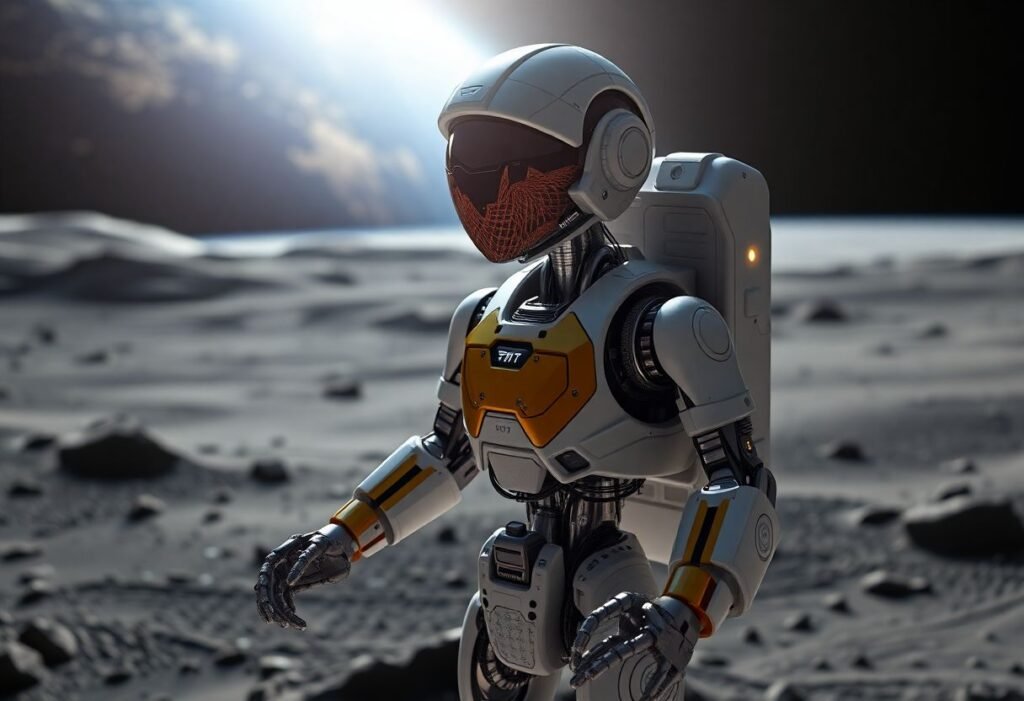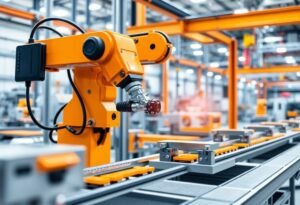The future of robotics in space exploration is not just a vision; it represents a significant leap in technological innovation. As we stand on the cusp of a new era, robotics plays a crucial role in addressing the myriad challenges of exploring beyond our planet.
The Role of Robotics in Space Missions
Robotics has transformed the landscape of space exploration, providing solutions that were unimaginable just a few decades ago. With the deployment of advanced robotic systems, missions to distant planets and moons have become more feasible and cost-effective. Robots can carry out extensive scientific investigations, collect samples, and perform maintenance tasks in environments that are hazardous to humans. For instance, the Mars rovers—such as Curiosity and Perseverance—are equipped with sophisticated tools that allow them to conduct experiments and send data back to Earth, thereby revolutionizing our understanding of the Martian surface. Such innovations in robotics are crucial as we push the boundaries of our exploration efforts.
Advancements in Robotic Technologies
The continuous advancement of robotic technologies is driving innovation in space exploration. Modern robots incorporate artificial intelligence, machine learning, and advanced sensors that enhance their operational capabilities. These innovations enable robots to navigate autonomously, make real-time decisions, and adapt to changing conditions on the fly. Robotics will lead the way in future exploratory missions to places like Europa, one of Jupiter’s moons, which is believed to harbor an ocean beneath its icy crust. Robotics will be critical for the collection of data necessary to determine whether life exists beyond Earth.
The Impact of Automation on Space Exploration
Automation is set to have a profound impact on space exploration. With the integration of automated robotic systems, missions can operate more efficiently and reduce the risk to human lives. Automation allows for continuous data collection and monitoring without the need for constant human oversight, enabling scientists and engineers to make informed decisions based on real-time data. Furthermore, the implementation of automated robotics can facilitate the construction of habitats and factories in space, paving the way for long-term human presence on other celestial bodies.
Collaborative Robots and Human-Robot Interaction
The future of space exploration will see an increase in collaboration between humans and robots. This partnership will enhance efficiency and safety on missions. Collaborative robots, designed to work alongside astronauts, can assist in various tasks, from conducting repairs to undertaking scientific experiments. These robots can perform mundane and dangerous tasks, freeing astronauts to focus on complex problem-solving and innovative thinking. As human-robot interaction advances, it will lead to a more symbiotic relationship that enhances the overall success of space missions.
International Collaboration and Robotic Missions
International collaboration is a vital aspect of advancing robotic missions in space exploration. Countries around the globe are pooling resources, expertise, and technology to design and deploy robotic missions that benefit all humanity. Initiatives like the International Space Station have demonstrated the power of collaborative efforts in space. Countries such as the United States, Russia, and members of the European Space Agency are working together on robotic projects aimed at understanding asteroids, analyzing Mars, and exploring the outer planets. This united front not only improves mission effectiveness but also fosters global partnerships in technological innovation.
Looking Ahead: The Future of Robotic Innovation in Space
As we look to the future, the role of robotics in space exploration will only expand. With the advent of new technologies, robotics will become more sophisticated and adaptable. Future exploratory missions will rely heavily on robotic systems to provide insights, gather data, and support human achievements in space. The vision of human colonies on Mars or missions to the outer planets will depend significantly on robotic innovations. The continuous evolution of robotics in space exploration underscores the importance of innovation in unlocking the mysteries of the universe.
Disclaimer: The information provided in this article is for educational purposes only and should not be considered as professional advice.





















